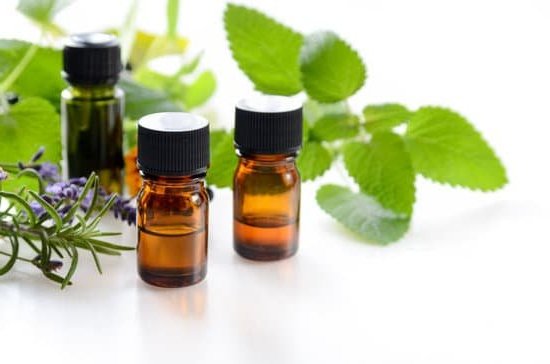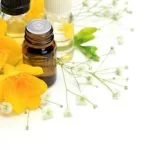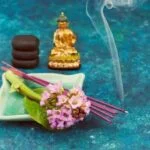Aromatherapy has been used for centuries as a natural way to promote health and well-being. One of the key components of aromatherapy is the use of essential oils, which are extracted from plants and known for their therapeutic properties. In this article, we will explore the world of aromatherapy oils, focusing on the different types available in the market today.
What are the different aromatherapy oils on the market? From calming lavender to invigorating peppermint, there is a wide range of essential oils to choose from. Each oil offers unique benefits and can be used in various ways to support physical, emotional, and mental health.
Essential oils like tea tree, eucalyptus, and lemon are popular choices in aromatherapy for their antibacterial, antiviral, and mood-boosting properties. These oils can be diffused, applied topically, or added to bathwater for a relaxing and rejuvenating experience. The versatility of aromatherapy oils makes them a valuable addition to any wellness routine.
Benefits of Using Aromatherapy Oils
Aromatherapy oils have gained popularity for their numerous benefits both for physical and emotional well-being. These natural extracts offer a holistic approach to healing and relaxation, making them a staple in many households and wellness practices. One of the main advantages of using aromatherapy oils is their ability to promote relaxation and reduce stress levels. Essential oils like lavender, chamomile, and bergamot are known for their calming properties, helping to alleviate anxiety and promoting better sleep quality.
In addition to their stress-relieving benefits, aromatherapy oils also have the potential to improve mood and boost mental clarity. Citrus oils such as lemon and orange are uplifting scents that can help elevate mood and increase focus. Peppermint oil is another popular choice for its ability to enhance concentration and alertness. By incorporating these essential oils into your daily routine through diffusing or topical application, you can experience a natural way to uplift your spirits and enhance cognitive function.
Furthermore, aromatherapy oils are not only beneficial for emotional well-being but also offer various physical health benefits. Eucalyptus oil, for example, is commonly used for its decongestant properties, making it an excellent choice during cold or flu season.
Tea tree oil is another versatile option known for its antibacterial and antifungal properties, making it a popular choice for skin care regimens. With the wide array of essential oils available on the market today, there is something suitable for everyone’s unique needs, whether it be respiratory support or skin rejuvenation.
Popular Essential Oils in Aromatherapy
Lavender Oil
Lavender oil is one of the most popular essential oils in aromatherapy due to its calming and relaxing properties. It is often used to promote sleep, reduce stress and anxiety, and alleviate headaches. Lavender oil can also help with skin irritations and insect bites when applied topically. Many people find the scent of lavender to be soothing and comforting, making it a versatile oil for various purposes.
Peppermint Oil
Peppermint oil is another well-known essential oil commonly used in aromatherapy. It is known for its invigorating and cooling effects, which can help improve focus and concentration. Peppermint oil may also provide relief from nausea, muscle pain, and headaches when applied or diffused. The minty aroma of peppermint oil can also serve as a natural decongestant, making it a go-to choice during cold and flu season.
Tea Tree Oil
Tea tree oil is revered for its powerful antibacterial, antifungal, and anti-inflammatory properties in aromatherapy. This essential oil is often used to treat acne, skin infections, and minor wounds due to its cleansing effects. Tea tree oil can also be added to homemade cleaning products to disinfect surfaces naturally. Its fresh scent makes it a popular choice for diffusing in the home to purify the air and support respiratory health.
Best Practices for Using Aromatherapy Oils Safely
Aromatherapy oils have gained popularity for their therapeutic benefits, but it is important to use them safely to maximize their effects and avoid any adverse reactions. Here are some best practices to consider when using aromatherapy oils:
- Always dilute essential oils before applying them directly to the skin. Most essential oils are highly concentrated and can cause irritation or sensitization if used undiluted.
- Perform a patch test before using a new essential oil to check for any allergic reactions. Simply apply a small amount of diluted oil on your inner forearm and wait for 24 hours to see if there is any redness, itching, or swelling.
- Avoid ingesting essential oils unless under the guidance of a qualified aromatherapist or healthcare provider. Some oils can be toxic when taken internally.
It is also crucial to store aromatherapy oils properly in a cool, dark place away from sunlight and heat. This helps preserve their potency and prevent them from going rancid. Additionally, keep essential oils out of reach of children and pets to prevent accidental ingestion or spills.
When diffusing essential oils into the air, make sure to follow the manufacturer’s instructions for your specific diffuser model. Overexposure to strong aromas can lead to headaches, nausea, or respiratory issues in sensitive individuals. It is recommended to diffuse oils intermittently rather than continuously for long periods.
Lastly, pregnant women, nursing mothers, children, elderly individuals, and those with certain health conditions should consult with a healthcare professional before using aromatherapy oils. Some essential oils may not be suitable for certain populations or medical situations due to potential interactions or side effects. By following these best practices, you can enjoy the benefits of aromatherapy oils safely and effectively.
Aromatherapy Oil Blends for Different Purposes (Eg Relaxation, Focus, Energy)
When it comes to aromatherapy, the use of essential oils in blends can create powerful synergies that enhance their individual properties. Whether you’re looking to relax, improve focus, or boost energy levels, there are specific essential oil blends that can help you achieve your desired results. Here are some popular aromatherapy oil blends for different purposes:
- Relaxation Blend: A combination of lavender, chamomile, and ylang-ylang essential oils can create a soothing and calming aroma that promotes relaxation and reduces stress. This blend is perfect for unwinding after a long day or before bedtime.
- Focus Blend: To improve mental clarity and concentration, try blending rosemary, peppermint, and lemon essential oils. This refreshing and invigorating blend can help you stay alert and focused during work or study sessions.
- Energy Blend: If you need a natural energy boost, consider mixing together citrus oils like orange and grapefruit with stimulating peppermint oil. This revitalizing blend can help increase alertness and combat fatigue throughout the day.
These are just a few examples of how combining different essential oils can create customized aromatherapy blends to suit your specific needs. Experimenting with various combinations can help you discover the perfect blend that resonates with you personally.
Incorporating these aromatherapy oil blends into your daily routine can have a positive impact on your overall well-being. Whether you diffuse them in your living space, add them to a relaxing bath, or use them in massage oils, these blends offer a natural way to promote relaxation, focus, or energy depending on what you need most. So next time you reach for an essential oil blend, remember the power of combining different aromas for enhanced therapeutic benefits.
Unique Aromatherapy Oils Worth Exploring
Aromatherapy oils have gained popularity for their therapeutic benefits and pleasant scents that can improve overall well-being. When looking into what are the different aromatherapy oils on the market, it is essential to explore some unique options that offer distinct properties for various purposes. One such oil worth exploring is Neroli oil, extracted from bitter orange blossoms. Known for its calming effects, Neroli oil is often used in aromatherapy to alleviate anxiety and promote relaxation.
Another unique aromatherapy oil to consider is Vetiver oil, derived from the roots of Vetiver grass. This earthy and grounding oil is excellent for promoting focus and mental clarity, making it a great choice for meditation practices or when needing to concentrate on tasks. On the other hand, Ylang Ylang oil, with its sweet floral aroma, is known for its uplifting and aphrodisiac qualities. It can help boost mood and increase sensuality, making it a popular choice for romantic settings.
Exploring unique aromatherapy oils opens up a world of possibilities for customized blends and targeted benefits. From exotic oils like Patchouli or Myrrh to lesser-known options such as Blue Tansy or Helichrysum, each oil offers a distinct aromatic profile and potential health benefits. Incorporating these unique oils into your aromatherapy practice can add depth and complexity to your experience, allowing you to tailor your blends to meet specific needs or preferences.
| Aromatherapy Oil | Main Properties |
|---|---|
| Neroli | Calming effects; anxiety relief; promotes relaxation |
| Vetiver | Grounding; enhances focus and mental clarity |
| Ylang Ylang | Uplifting; aphrodisiac qualities; mood-boosting |
How to Choose the Right Aromatherapy Oil for Your Needs
When it comes to choosing the right aromatherapy oil for your needs, it is essential to consider several factors to ensure you get the most benefit from its therapeutic properties. Firstly, it is crucial to identify your specific needs or goals for using aromatherapy oils. Whether you are looking to promote relaxation, improve focus and concentration, boost energy levels, or alleviate certain health concerns, there is an essential oil that can support your objectives.
Next, you should consider the aroma preferences that resonate with you personally. Each essential oil has a unique scent profile that can evoke different emotional responses. For example, lavender is known for its calming and relaxing properties, while peppermint is invigorating and energizing. By choosing an aroma that resonates with you, you are more likely to enjoy the benefits of aromatherapy.
It is also important to take into account any potential sensitivities or allergies you may have to certain essential oils. Some individuals may have adverse reactions to specific oils, so it is always recommended to do a patch test before using a new oil extensively.
Additionally, consulting with a qualified aromatherapist or healthcare provider can help you determine which oils are safe and suitable for your individual needs. By taking these factors into consideration, you can confidently choose the right aromatherapy oil that will enhance your overall well-being and promote a sense of balance and harmony in your life.
Where to Purchase High-Quality Aromatherapy Oils
When looking to purchase high-quality aromatherapy oils, it is essential to consider the source and production methods of the oils. Many reputable companies offer a wide range of pure and natural essential oils that are specifically designed for therapeutic use. It is recommended to look for organic or wildcrafted oils that are free from synthetic additives or dilutants. Additionally, considering oils that are sustainably sourced and produced through ethical practices can also enhance the quality of the product.
One popular option for purchasing aromatherapy oils is through specialized health stores or wellness boutiques. These establishments often carry a curated selection of essential oils from trusted brands known for their quality and purity standards. Visiting these stores allows customers to ask questions and seek guidance from knowledgeable staff members who can recommend specific oils based on individual needs and preferences.
Another convenient way to purchase high-quality aromatherapy oils is through online retailers that specialize in natural products. Many reputable websites offer a vast selection of essential oils, allowing customers to compare different brands, read reviews, and make informed decisions before making a purchase. It is important to verify the authenticity and reputation of the online retailer to ensure that you are getting genuine and pure essential oils for your aromatherapy needs.
| Where to Purchase | Benefits |
|---|---|
| Specialized Health Stores or Wellness Boutiques | Curated Selection, Expert Guidance |
| Online Retailers | Vast Selection, Reviews, Convenience |
Aromatherapy Oils DIY Recipes and Applications
Aromatherapy oils are versatile and can be easily incorporated into DIY recipes for various purposes. Creating your own blends allows you to customize the scents and benefits to suit your personal preferences and needs. There are endless possibilities when it comes to combining different essential oils to achieve specific effects such as relaxation, focus, or energy.
Aromatherapy Oil Diffuser Blends
One popular way to enjoy the benefits of aromatherapy oils is by using a diffuser. By combining different essential oils in a diffuser blend, you can create a fragrant atmosphere that not only smells amazing but also promotes overall well-being. For a calming blend, try mixing lavender, chamomile, and bergamot. If you need an energy boost, consider blending peppermint, citrus oils like lemon or orange, and eucalyptus.
Aromatherapy Rollerball Recipes
Rollerballs are convenient for on-the-go aromatherapy application. By diluting essential oils with a carrier oil such as fractionated coconut oil or sweet almond oil, you can create roll-on blends that can be applied directly to pulse points or specific areas of the body. For stress relief, try mixing frankincense, lavender, and geranium in a rollerball. To enhance focus and concentration, consider blending rosemary, peppermint, and lemon essential oils.
Aromatherapy Oil Bath Soak Recipes
Adding aromatherapy oils to your bath water can turn your bathing experience into a spa-like retreat. Create your own bath soak by mixing essential oils with Epsom salts or carrier oil before adding it to warm bathwater. Relax with a blend of ylang-ylang, jasmine, and cedarwood essential oils.
For muscle relaxation after a long day, combine lavender, marjoram, and chamomile in your bath soak mix for soothing relief. Enjoy the therapeutic benefits of aromatherapy while unwinding in the comfort of your own home.
Conclusion
In conclusion, the world of aromatherapy oils is vast and diverse, offering a wide array of options for promoting health and well-being. From popular essential oils like lavender and peppermint to more unique oils such as ylang-ylang and helichrysum, there is a variety of choices to suit different preferences and needs. Each essential oil carries its own set of therapeutic benefits, whether it’s promoting relaxation, improving focus, or boosting energy levels.
Exploring the different aromatherapy oils on the market can open up a whole new world of natural remedies and holistic healing practices. By understanding the benefits and best practices for using these oils safely, individuals can harness the power of aromatherapy to support their physical, emotional, and mental health. Whether creating personalized blends for specific purposes or using pre-made oil combinations for convenience, there are endless possibilities for incorporating aromatherapy into daily self-care routines.
Overall, it’s essential to choose high-quality aromatherapy oils from reputable sources to ensure their effectiveness and safety. With proper research and guidance on selecting the right oils for individual needs, anyone can experience the transformative properties of aromatherapy in their lives. The versatility and healing properties of aromatherapy oils make them a valuable addition to any wellness toolkit, providing natural solutions for various ailments and enhancing overall health and vitality.
Frequently Asked Questions
What Are the 7 Essential Oils?
Essential oils have gained popularity for their various benefits in aromatherapy and skincare. Seven essential oils that are commonly used include lavender, peppermint, tea tree, eucalyptus, lemon, frankincense, and chamomile. Each oil has its unique properties and uses in promoting overall well-being.
Which Oil Is Best for Aromatherapy?
When it comes to aromatherapy, the best oil can vary depending on individual preferences and needs. However, lavender oil is often considered one of the most versatile and widely used essential oils for relaxation and stress relief. Its soothing scent is known to promote calmness and improve sleep quality, making it a popular choice among aromatherapy enthusiasts.
What Are the 10 Most Popular Essential Oils?
The world of essential oils offers a wide range of options with different scents and therapeutic benefits. Some of the 10 most popular essential oils include lavender, tea tree, peppermint, lemon, eucalyptus, rosemary, frankincense, chamomile, bergamot, and ylang-ylang.
These oils are commonly used in diffusers or diluted with carrier oils for various purposes such as relaxation, skin care, or alleviating common ailments like headaches or congestion.

Are you looking for a natural way to improve your health and wellbeing?
If so, aromatherapy may be the answer for you.





